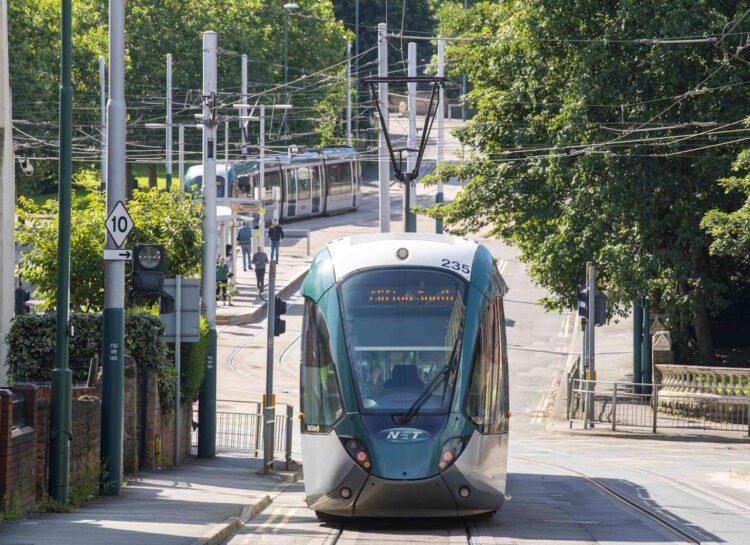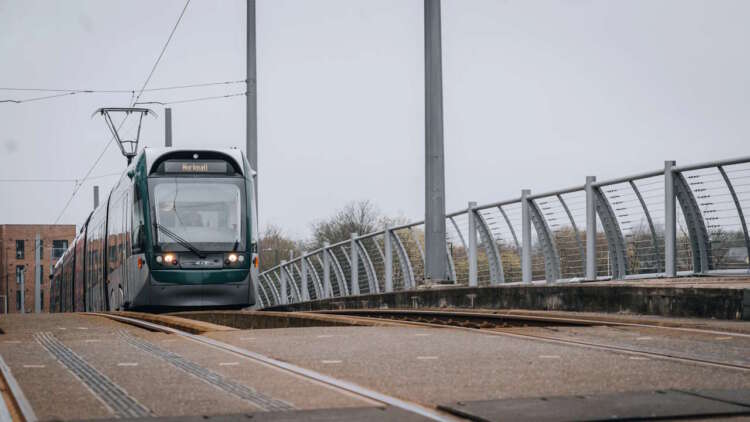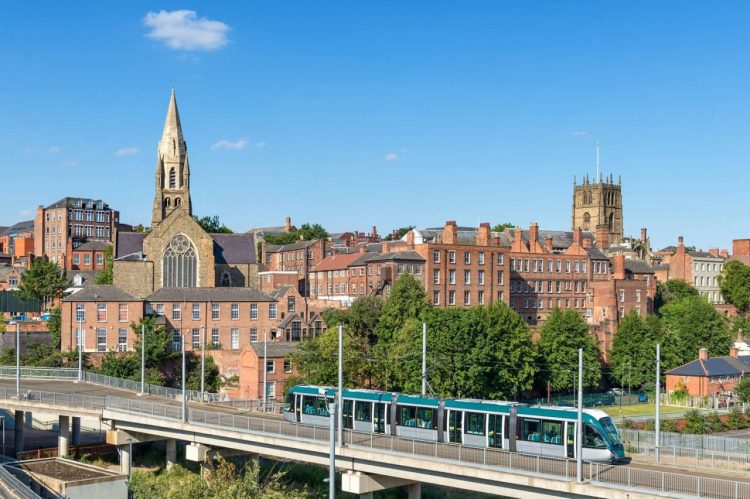Although passenger volumes on Nottingham Express Transit (NET) are still 20% less than pre-pandemic levels, after financial restructuring the network is in a much more stable and robust position for the coming financial year.
Tramlink Nottingham Limited, which operates the NET concession, carried out the recent financial restructuring in partnership with the Department for Transport and Nottingham City Council. Annual accounts for the year to 31 March 2023 reported a loss due to impacted passenger numbers and high energy costs.

Passenger journeys increased to 14.4m, compared with 9.1m the previous year, and a gross profit of £7.65m was made compared to £4.90m in the previous year, before taking into account COVID relief grants from central government and exceptional fixed asset impairment charges.
However, total losses before tax and including interest charges increased to £57.1m from £20.4m for the prior year, which was in line with financial expectations. The loss came about because of an impairment charge of £26.7m to reduce the carrying value of fixed assets in line with revised expected net present value future cashflows over the remainder of the concession in the post-COVID business environment.

To ensure the business remains a going concern and can continue to serve travelling public as part of the financial restructuring Tramlink negotiated with its lenders to revise the terms of its loans.
Tramlink has the concession to run Nottingham’s tram system until 2034, and the loss factors in losses from previous years following investments in the system, including expanding the network and purchasing new vehicles.
Last year, NET launched a zero-tolerance campaign to crack down on fare evasion with a ‘no questions asked’ £70 Penalty Fare Notice for anyone travelling without a valid ticket or pass. If unpaid the recipient will be liable for prosecution with a further fine of up to £1,000 and a criminal record.

Tim Hesketh, CEO of Tramlink said: “Like many other public transport operators, there’s no denying that we’re still feeling the effects of the pandemic. It’s promising to see that post-pandemic passenger levels are well on their way to recovery, with figures showing they’re at 80% of what they were before COVID.
“However, we remain committed to doing all we can to ensure the network can continue to provide a sustainable and convenient option for the thousands of people who rely on it for travel in and around the city. That’s why we believe the restructure was essential for helping us make some key improvements to our operations.
“It will not only give us a much more secure financial position, but it will also allow us to make a raft of investments into areas such as new technology, updates to our ticket systems and the recruitment of additional revenue protection officers.”
“It’s been a challenging few years and we’d like to thank the City Council and Department of Transport for all their support. Thanks to the restructure, we look forward to a brighter year ahead for the network and the wider city.”






Responses
Public transport needs to be affordable / accessible as a base minimum.